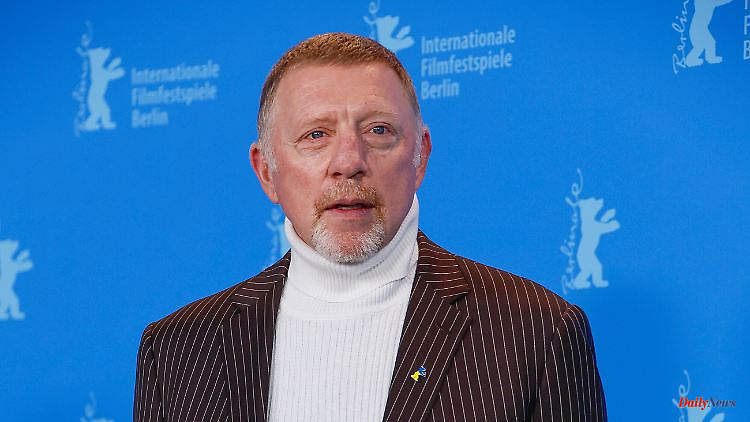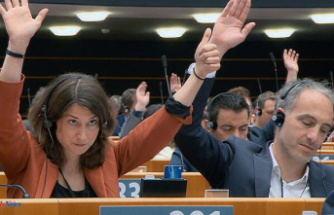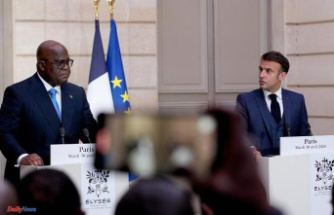At 17, Boris Becker became the youngest Wimbledon winner and became a folk hero. Later he repeatedly made negative headlines and even ended up behind bars for tax offenses. At the Berlinale, a documentary reviews the life of the tennis legend.
The contrast could hardly be greater. A few months ago, Boris Becker was still in a prison in England for bankruptcy offences. Now the tennis legend is caught in the flashbulbs of the Berlinale film festival, where Hollywood greats such as Kristen Stewart, Anne Hathaway, Steven Spielberg and Cate Blanchett are popping up these days. They all wanted to talk about films - Becker also traveled to Berlin for this. Director Alex Gibney has made a documentary about the ups and downs of his life. The first part of it celebrates its premiere at the Berlinale.
Shortly before that, Becker is sitting at a press conference and says he hopes the film will show a side of him that hasn't been seen before. "Especially in Germany, it is often not allowed that the youngest Wimbledon winner of all time has grown up." The idea for "Boom! Boom! - The World vs. Boris Becker" came up five years ago. At the time, no one knew what would happen in the end.
For the documentary, Gibney interviewed the tennis star in 2019 and 2022, a few days before he was sentenced to two and a half years in London. According to the verdict, he had concealed assets worth millions from his insolvency administrators. In mid-December, the ex-tennis star was released after 231 days behind bars. How did this low point come about?
In an attempt to find answers, the documentary reviews many stages of Becker's career advancement - and above all gives his perspective a lot of space. What Becker has to say is not new, it has often been said in the past. It's the story of a tennis-mad kid who, at 17, becomes the youngest champion ever to lift the Wimbledon trophy.
Becker becomes a folk hero, a teenage idol that helps tennis in Germany to flourish like never before. The media pounce on him, Boris Becker becomes "Bum Bum Boris!", the "Bobbele". He learns from the tabloids what is going on: "Adolf Hitler, German unity, Boris Becker," he says in the film.
A hype to which Becker is powerlessly exposed and with which he cannot cope. Especially not when there is no success. Again and again in the film he talks about a lack of independence and the struggle to achieve it. And about the pressure that weighed on him and that ultimately drove him into addiction to sleeping pills.
"Life as a winning tennis machine is a lot tougher than it looks," says Becker. You always have to work. Every player has a way of dealing with those expectations. It was particularly difficult for him in Germany. "If I don't win, Germans in particular try to crucify me," said the 55-year-old. "I've never been able to please everyone."
All of this could be an attempt to explain Becker's crash - at least the first part of the film does not give a clear answer. The result is the portrait of the exceptional talent who, with iron willpower, always manages to get up after defeats. In addition to Becker, companions such as Becker's former manager Ion Țiriac or the ex-professional players Björn Borg and John McEnroe also have their say.
When asked about the title - Die Welt gegen Boris Becker - the ex-tennis star replies that he does not want to complain about his life. He made mistakes, like probably everyone else. He paid a high price for this. The past five years have been long and exhausting.
Now he is happy to have come out of prison safely after eight months and six days, "in peace and freedom". Today he is a little better, a little smarter, a little more humble. "We should all strive to be better people," he explains. "Can we do that every day? I don't think so. But hope dies last, they say." With the film he hopes for "a new perspective on Boris Becker as a person".












